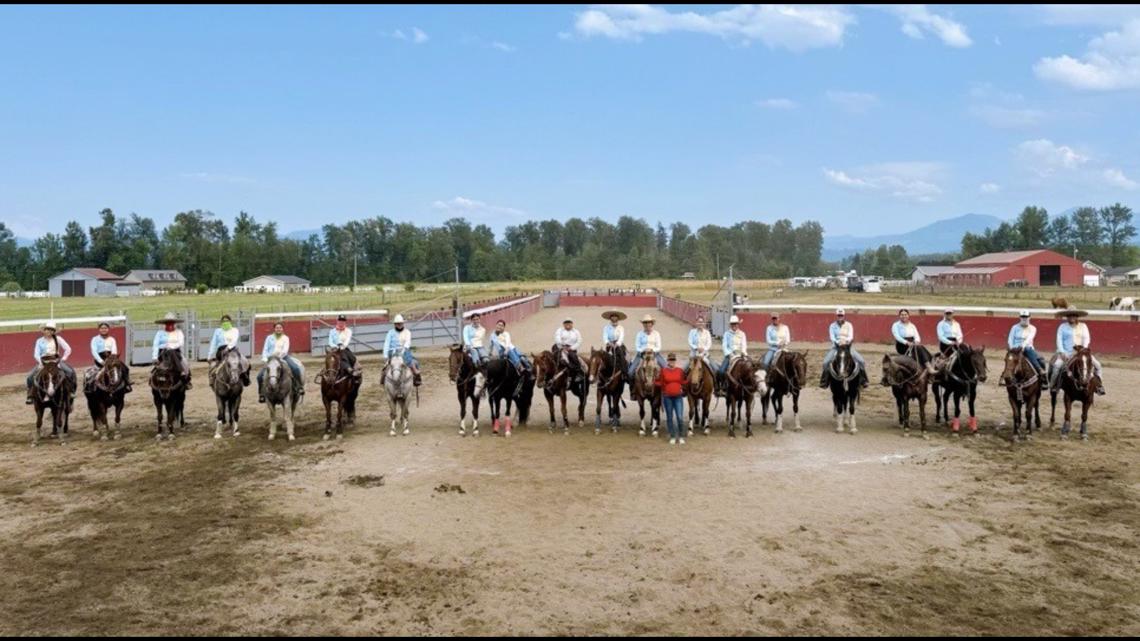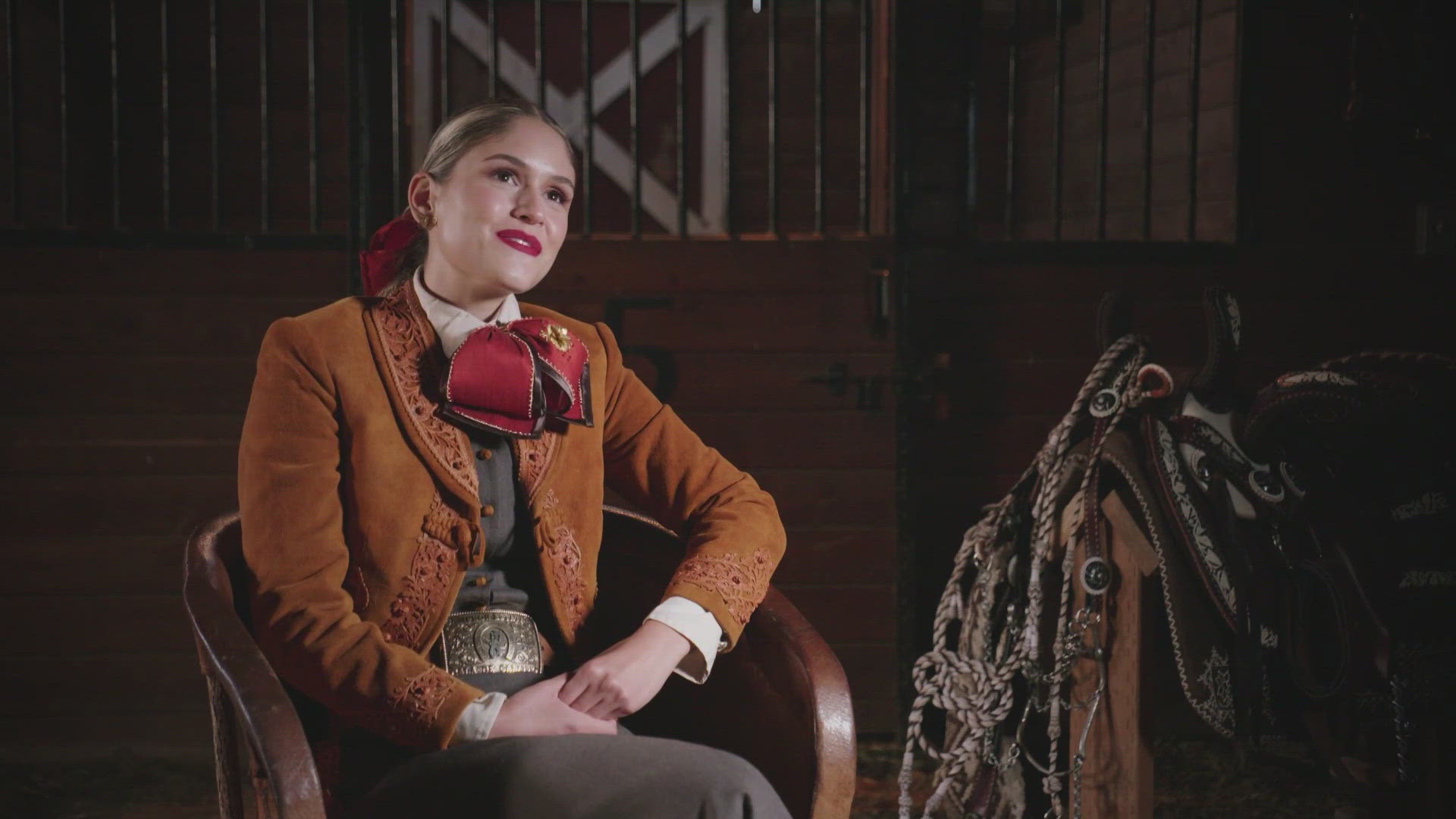WASHINGTON, USA — Paola Pimienta is a woman at the top of her sport.
“Escaramuza charra is female empowerment. Escaramuza charra is the future, sisterhood, and… escaramuza charra is family.”
Pimienta is the U.S. National Queen and ambassador for escaramuza charra – a traditional Mexican rodeo event, and the only one to include women. Women in traditional dress ride their horses in synch, performing a routine set to music. The sport has deep roots in Mexican culture – and has helped Pimienta feel connected to her ancestry.
“From kindergarten through eighth grade, I was one of the few Latino kids in my classroom,” Pimienta said. “And I never really had the opportunity to talk about having two-sided biculturalism and bilingualism. I started to lose my Spanish… I was very embarrassed of what it was to be Mexican.”
Pimienta, who is a first-generation American, became involved in the sport when her father brought her horse from Mexico. Then, she was invited to join a team.
“I realized that it was more than just an activity,” Pimienta said.
She now plays a vital role in preserving this rich cultural tradition alongside other Latina women in western Washington.
‘We represent our ancestors’
During an escaramuza charra routine, eight women on horseback complete 12 different exercises.
“We do tight crossings, tight turns, all at a full-speed gallop,” Pimienta said, “and we do all of it inside saddle dresses and sombreros.”
Horseback riding in general has historically been a common skill among women in Mexico, particularly in the north, according to a professor of women’s and gender studies and Spanish at Seattle University Gabriella Gutiérrez y Muhs. It was common for men in northern Mexico to go work in the United States, leaving the women to take care of the agricultural responsibilities and farmwork, which was made much easier by riding a horse.
The sport of escaramuza charra takes some inspiration from the role horseback-riding women played in the Mexican Revolution in the early 1900s, Gutiérrez y Muhs said. One category of uniform directly references them.
Adelitas or soldaderas were Mexican women who fought alongside men in the 10-year conflict. Fighting in the war gave these women more personal freedoms – and also visibility on the world stage as revolutionaries.
“These women also became generals – they set some precedent for women in war all around the world,” Gutiérrez y Muhs said. She explained that women in the Russian Revolution took inspiration from the soldaderas’ example.
“Adelitas or soldaderas, were the symbolic of the woman warrior,” Gutiérrez y Muhs said. “It's the first time in the history of Mexico that worldwide, the woman is seen as a strong warrior.”
Pimienta said she and her teammates seek to embody the fearlessness of the soldaderas during their competitions.
“You have to be able to have a certain level of emotional capacity and mental strength to be able to handle moving a horse,” she said, “but also knowing that a centimeter off in an exercise could cost your life.”
Women participating in escaramuza charra seek to portray this cultural heritage as authentically as possible in their uniforms.
“The detail is so important because of the fact that we represent our ancestors,” Pimienta said. Their uniforms are made entirely out of natural fibers, replicating the type of fabric that the soldaderas used to wear. “It’s honoring what they did, and honoring the origin of where it all started.”
Preserving a tradition
Every Labor Day weekend, the U.S. Coordination of Charreria hosts the national competition. This year, it was held in Katy, TX, with Escaramuza Monumental USA, an exhibition team led by Pimienta, representing the US.
A total of 20 girls came from all over the country to join Pimienta’s team.
“To basically do a boot camp at my ranch in Washington to prepare for Nationals USA. It was a total of four days together, and we would practice and we made our routine.”
Pimienta said she sees herself as someone who preserves and maintains this important Mexican tradition here in the US.
“There are so many individuals who have migrated to the US, have built their lives,” she said. “When we leave our home countries we also leave our identity – and having these types of traditions available to people offers them a sense of community.”
“As a young community we have a huge responsibility,” she continued. “We hold the key to our future.”



